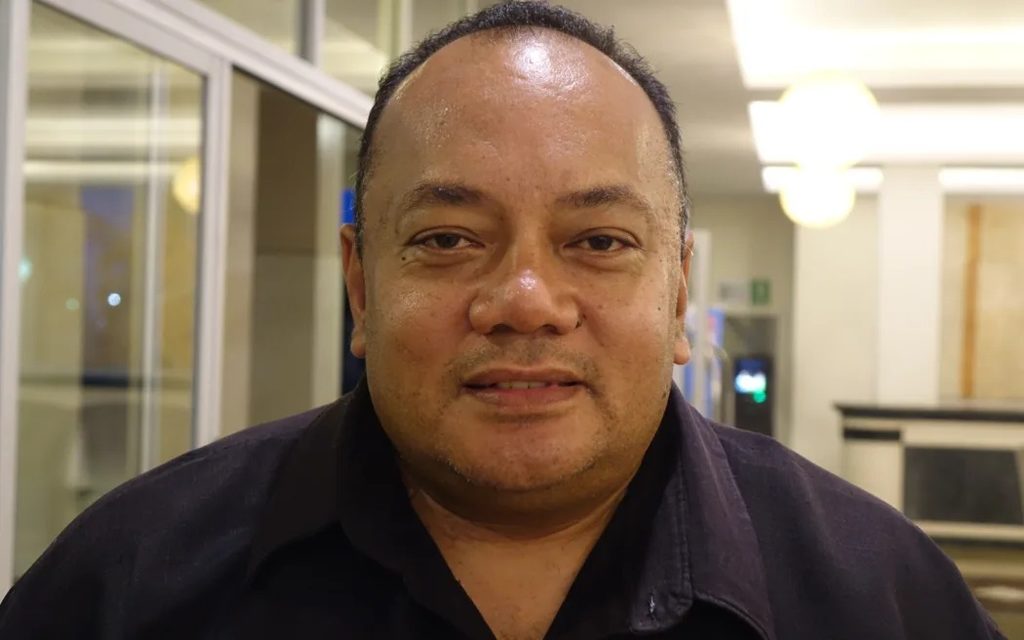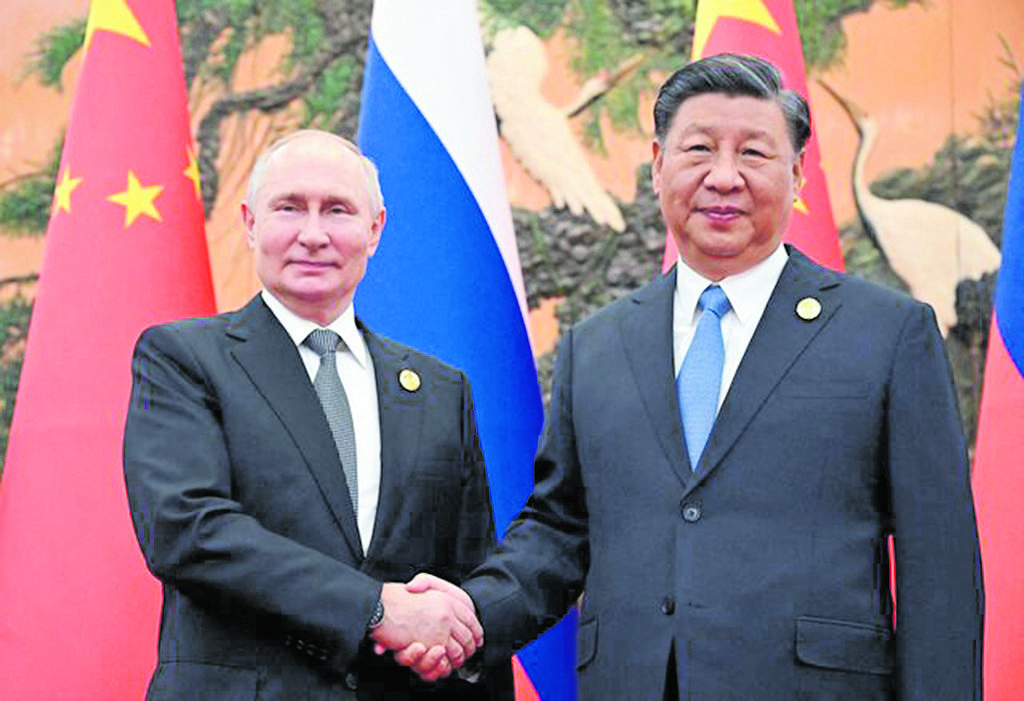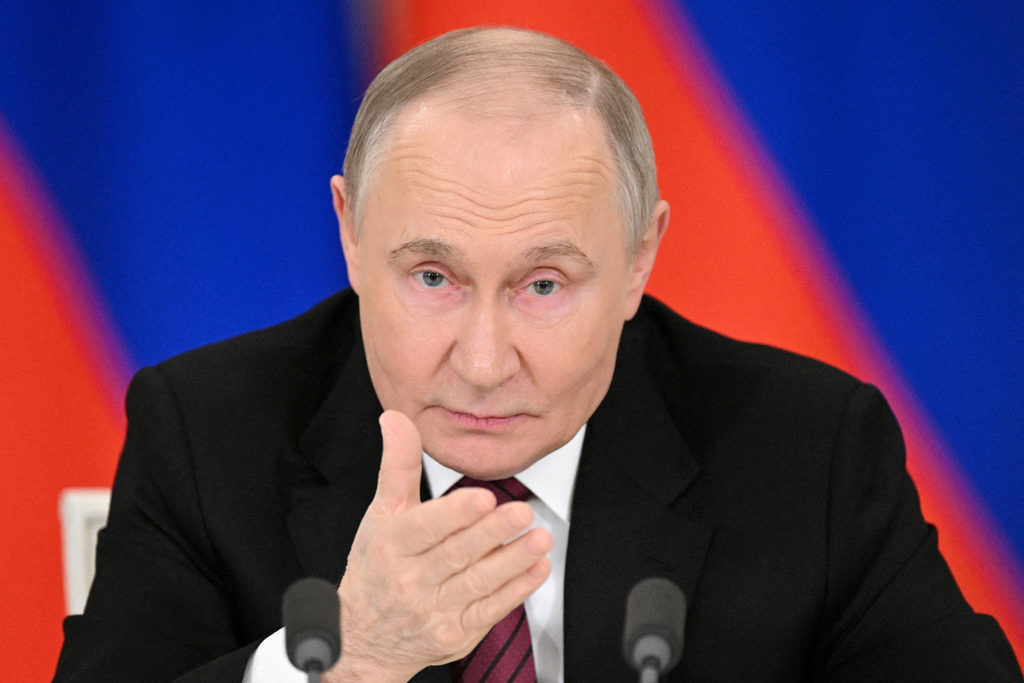IN a stunning diplomatic oddity, Tonga’s former Prime Minister Siaosi Sovaleni secretly invited Russian president Vladimir Putin as a “special guest” to the 53rd Pacific Islands Forum in Nuku’alofa in 2024.The unprecedented move, revealed through leaked correspondences between the Tongan Prime Minister Office and the Russian Embassy in Wellington, exposes the fragility of the current regional unity and especially the so-called “leadership” of regional hegemons Australia and New Zealand.
The region is extremely geo-strategic in terms of global security and the global economy.
As great power competition intensifies in the region, the true character of the members is put to the test, and what they believe as their ‘manifest destiny’ will in due course show.
“The Pacific Islands occupy a pivotal location that is important to US efforts to protect Americans and deny China’s regional hegemonic ambitions,” said Andrew Harding, research assistant at Asia Studies Centre’s The Heritage Foundation.
While Putin did not attend, the invitation mirrors overtures by the Soviet Union in the 1960-70s.
Those signals alone catalysed the final unraveling and decolonisation of most island countries, particularly from the British Empire, and serve as a reminder that while the world is looking in one direction, actions of consequence may be unfolding in another.
The invitation, sent under Tongan government seal on June 28, 2024, marked the first time a major power’s head of state that was not a traditional dialogue partner was invited to the PIF, the Pacific’s premier political summit uniting 18 members, including Tonga and the island states, as well as Australia and New Zealand.
Sovaleni’s rationale remains unclear—he dismissed inquiries as “old news”—aimed at playing the powers against each other.
His successor, Aisake Eke, was taken aback when informed of his predecessor’s intentions.
“I would have no idea why he would do that,” said Eke.
Eke was signed into office early this year, after Sovaleni resigned as prime minister in the face of a vote of no-confidence motion against him and his administration.
A few months earlier, in mid-2024, Sovaleni’s then foreign affairs minister, Fekita Utoikamanu, allegedly authored a note leaked from her office, lambasting Australia and New Zealand as being “frantic” over the Chinese presence in the region.
She may have been referring to the late scuttling by the two countries in the face of revelations that the Chinese Communist Party’s influence is growing deeper and deeper in the region, and the realisation that they had little to counter with, given the years of neglect and mismanagement of the region.
The Sovaleni administration is now historically known for the amount of foreign aid it has attracted from bilateral and multilateral relationships, as well as the extravagant expenses this has brought, including a fully furnished modern gymnasium from China.
A few months prior, His Majesty Tupou VI had already revoked Sovaleni’s defence minister appointment, along with his Foreign Minister Utoikamanu’s ministerial appointments, but reasons had not been given then.
Although Sovaleni’s gamble may be seen as reflecting a broader Pacific strategy of hedging between powers to secure economic aid, security cooperation and diplomatic autonomy, the timing and choice of invitee may not have gone down well with Tonga’s traditional partners in the West.
Moses Sakai, a fellow at the PNG National Research Institute, said “PIF’s traditional partners would see it as a threat on the basis of Russia’s aggressive behaviour in Europe, with Ukraine, especially in the security realm.”
Had Putin taken the invitation and attended, the PIF would have most likely sparked a sudden militarisation and an arms dump into the region, increasing the probability of becoming a flashpoint that would have wracked the international system.
Tonga lacks the infrastructure to host a high-security leader embroiled in a bloody war in Ukraine, and the presence of Russian military assets could have provoked Western allies, who view the Pacific as their backyard and sphere of influence.
China’s stance remains ambiguous. Beijing may see Russia’s entry as a distraction from its own Pacific ambitions.
Overall, the invitation risked escalating tensions, potentially dividing the PIF between pro-Western, pro-China and neutral factions.
“As far as I know, Russia isn’t a dialogue partner. Having said that, leaders, of course, are at liberty to engage with whomever they wish. The question then becomes: how will that decision affect existing relationships with traditional partners?” Dr Malakai Koloamatangi, Pacific history professor of Political Science and International Relations, said.
“The answer is, despite the usual rhetoric by powers aligned with the West that they are not affected by such developments and sovereign nations are free to do as they please, they ARE affected by these relationships. “Consider the recent fuss that’s been kicked up by New Zealand over the Cook Islands’ approach to China.”
For Russia, the invitation is a diplomatic coup. Isolated by Western sanctions over Ukraine, Moscow gets an invite to a traditional far-flung region, gaining a toehold against the narrative of Western dominance in the Pacific.
Russia’s ties with Fiji, Vanuatu and Papua New Guinea—through military aid and energy partnerships— establish its global power aspiration.
The US, stretched across global conflicts, may now be forced to reconsider approaches to a combined China-Russia entanglement in the region.
However, it is unclear whether China views Moscow’s Pacific presence as a complication to its Belt and Road initiatives.
Both powers must recalibrate strategies, adjusting diplomatic and military postures to address this new dynamic.
Even more so, Washington and its allies, who would be at the receiving end of these postures and is far more removed from the Western Pacific.
The PIF, founded in 1971, has long been a stage for geopolitical jockeying. If taking a Mackinderian or Mahanian approach, one would easily recognise that just off the South China Sea are the chains of archipelagos of the Pacific islands en route to America and her allies.
Between Russia and China, if they manage to control both the terrestrial Eurasian and Western Pacific maritime pivots of history, it would spell a lot of problems for the current and future stability of the international system for the US and the West.
Access to resources, trade and markets and strategic lines of communication are all the language of the Pacific.
The US Navy’s island chain system against any aggression from the east and Asia is anchored on the string of islands from Papua New Guinea, the Solomon Islands, Vanuatu, Fiji and Tonga.
They have a commanding presence towards the security of Australia and New Zealand as well, being either a Lei (garland) of Peace, or a Noose of Insecurity.
If China succeeds in infiltrating and co-opting the Pacific countries, Western interests and unaccountable influence on global security and economy will have been dictated by Beijing.
If China’s actions and advances are left unchecked or unprioritised, however, it will be difficult for the US to advance its national interests with increased threats to American security and prosperity.
As American Foreign Policy Council Senior Fellow in National Security Affairs Alex Gray penned recently for the Foreign Policy Magazine Online: “the Pacific Islands are much more than just a minor component of US Indo-Pacific strategy: They can determine the ultimate success or failure of that strategy.”
The PIF risks becoming a bloated bureaucracy, criticised for prioritising elite interests over development.
It is an echo of an earlier, authentic 19th-century attempt at unification led by the former Kingdom of Hawaii, with the hopes of integration with the empire of Japan. Such latent hopes of a Confederation of Polynesia or unifying to face off external domination and preserve sovereignty and freedom, led directly to the formation of the current inter-governmental super-bureaucracy of the current PIF.
This manifest destiny among Polynesians and Pacific Islanders as the greatest navigators in human history, attempted to unify the largest geopolitical and geographical polity in history albeit to some, briefly disrupted by European imperialism and colonisation.
The Pacific remains one of the world’s least developed regions, with colonial legacies—French, British, Australian, New Zealand and Indonesian—still unresolved.
Tonga’s gambit is a wake-up call.
The Pacific is no longer a passive, isolated corner of the Grand Chessboard, but an active front and player in global power politics, demanding attention as a geopolitical force.
Former Prime Minister of Tonga Siaosi Sovaleni. Picture: RNZ

Russian President Vladimir Putin, left, and Chinese President Xi Jinping. Any mention of the two countries or their leaders evoke considerable alarm in the Pacific. Picture: REUTERS



